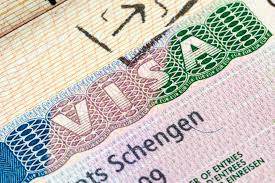By Ayanfe Oladapo
Copyright bizwatchnigeria

Rising visa fees by major foreign missions are expected to push more Nigerians toward remote and offshore work, creating fresh opportunities to earn foreign exchange without leaving the country.
Last week, US President Donald Trump signed an executive order imposing a $100,000 fee on applicants for the H-1B visa programme for skilled foreign workers. Starting in 2026, Nigerians and citizens of other African nations, including South Africa, Kenya, Egypt, Morocco, and Ethiopia, will face higher visa costs, stricter documentation requirements, and longer processing times under the new US travel visa regime.
Visa hikes are not limited to the United States. In April 2025, the United Kingdom raised the cost of its 10-year visitor visa from £963 to £1,059, while student visas rose by seven percent to £524. Short-term visitor visas for six months increased from £115 to £127. The European Union had earlier raised its Schengen visa fee in 2024 to €90 from €80, and the United Arab Emirates has also adjusted its visa charges upward.
Analysts believe these rising costs will accelerate a shift among Nigerians toward remote work arrangements. Akintunde Opawole, founder of Danval Technologies, said the H-1B fee hike could help Nigeria expand its market share in the global information technology and business process management (IT-BPM) sector.
“What this means is that not only are remote jobs going to be offered to talents all over the world, it will also lead to outsourcing businesses and processes to our start-up companies too. Fortunately for Nigerians, we have all that is required to take advantage of this policy and market,” Opawole said.
He pointed to Nigeria’s favorable time zone and youthful workforce as natural advantages. With an average age of 17 years, Nigeria’s talent pool is far younger than that of the United States, Europe, or Japan. He also noted that ICT already contributes 18 percent to Nigeria’s GDP, underscoring the sector’s potential for job creation.
Ike Ibeabuchi, an emerging markets analyst, added that visa restrictions make remote work an increasingly viable alternative. “Several Nigerians no longer need to travel to the US or Europe in search of jobs as they can sit at home and deliver the same value. With visa restrictions and higher fees, more employees will stay online,” he said.
Experts project that more roles in software development, data analysis, design, and customer support will be filled remotely by Nigerian professionals. Nubi Achebo, director of academic planning at the Nigerian University of Technology and Management (NUTM), said the $100,000 H-1B fee could reshape US hiring patterns, encouraging employers to opt for remote arrangements or regional offices in lower-cost countries, including Nigeria.
However, not all analysts agree. Olamide Adeyeye, country head of Programmes at Jobberman Nigeria, argued that visa hikes may not directly drive the shift to remote jobs. “Migration is influenced by a lot of social and economic reasons, such as how safe people feel, the enabling environment, and the quality of relationships they get exposed to. Remote jobs are already growing on their own, and relocation is not always an economic decision,” she said.
Adeyeye noted that foreign organisations are increasingly open to hiring talent on the continent because it is cheaper and more sustainable than relocating workers abroad.
Meanwhile, travel experts warn that the US visa changes will significantly affect African travellers. According to Travel and Tour World, thousands of Nigerians and other African nationals seeking entry to the US for tourism, work, study, or exchange programmes will face higher barriers. While South Africans currently benefit from the US Visa Waiver Program, other categories such as the B1/B2 tourist visa, H-1B work visa, and F, M, and J student or exchange visas will all be subject to the new regime.
The revised policy, US officials say, reflects rising visa demand across Africa and growing security concerns.



